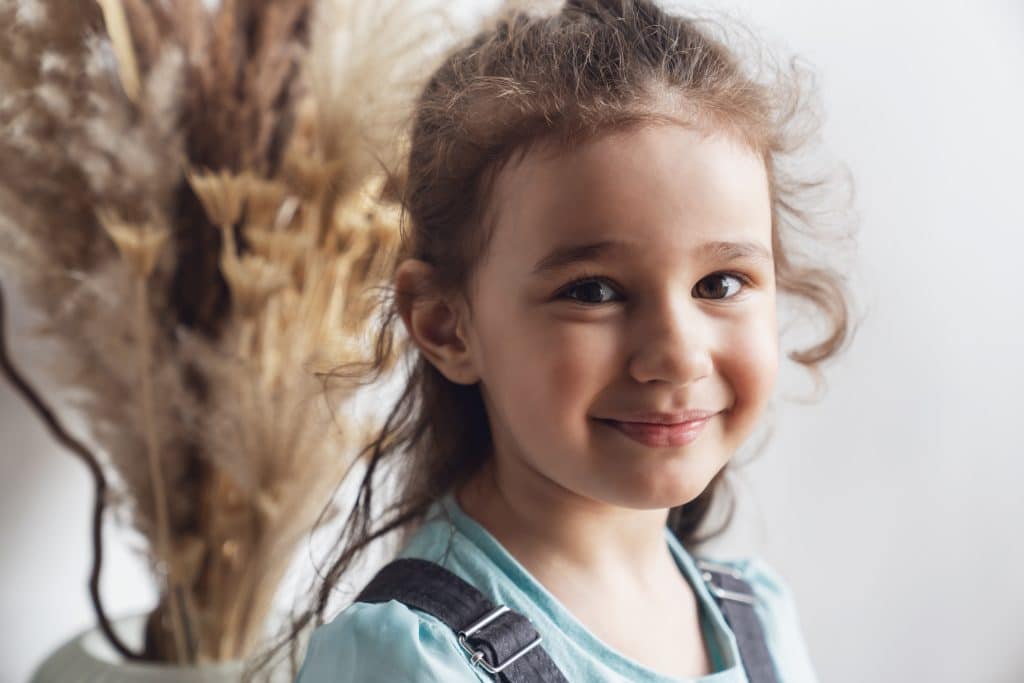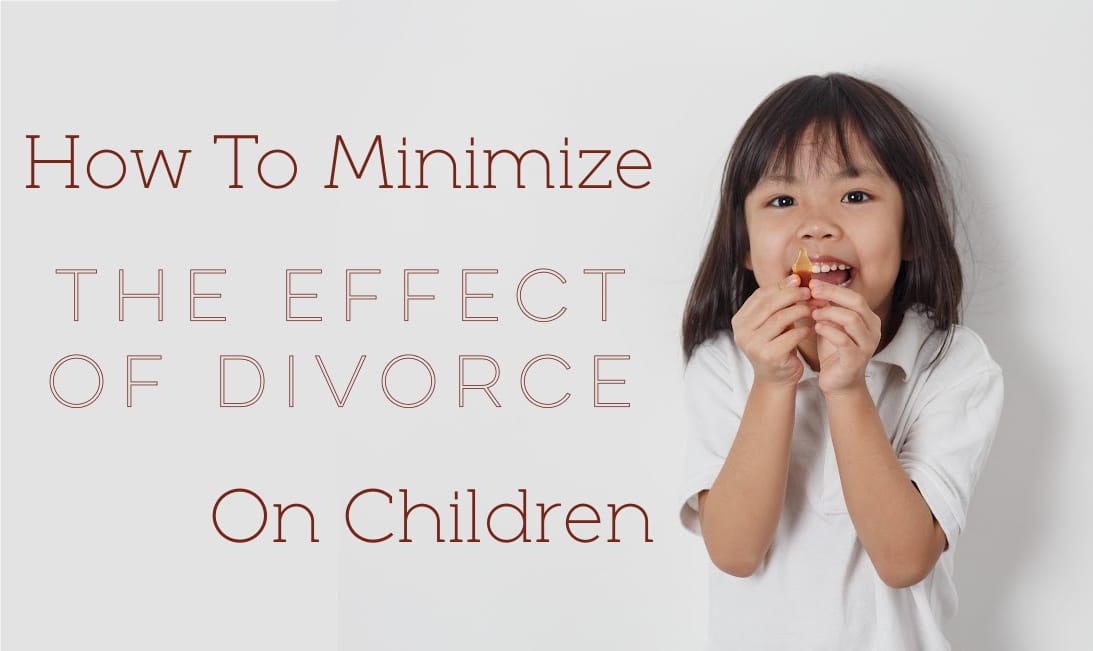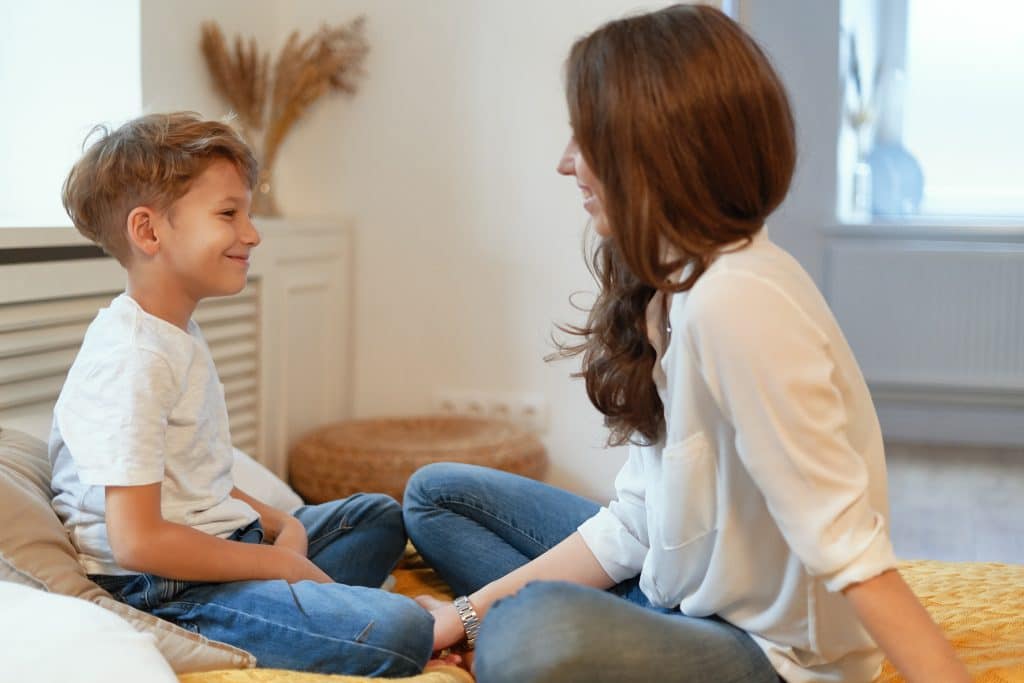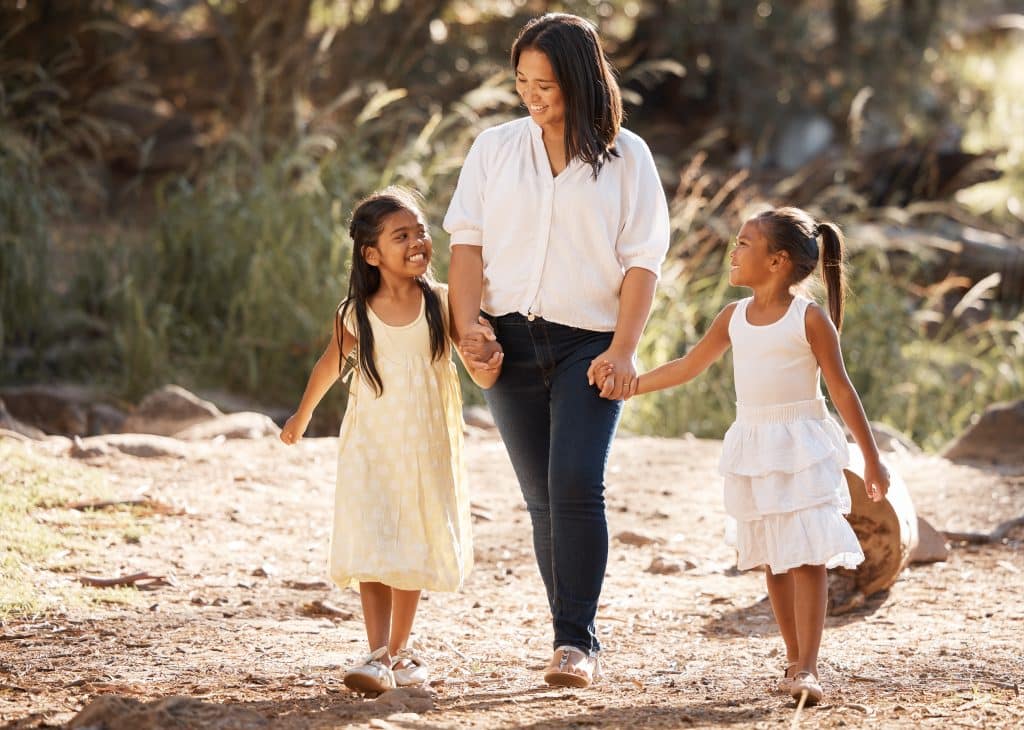Many couples choose to stay together “for the kids,” but in reality, a toxic marriage can be far more harmful than a healthy divorce.
Even if divorce is the best option for you, you may be hesitant about the negative effects of divorce on your children. After all, divorce can qualify as an Adverse Childhood Event (ACE), depending on your child’s personality and many other factors—even if the divorce isn’t particularly “messy.”
However, research has shown that most children recover with little to no negative impact, especially when their parents are focused on their welfare.
While it’s not always possible to avoid separation and divorce, there are ways to minimize the negative impact of divorce on your children to give them the best chance of success in their journey through life.
1. See Things Through Your Child’s Eyes
When parents divorce, it can be difficult to look past their own emotions at how their children are handling the divorce.
Take some time to reflect on your children’s experience. What have they seen you do? What have they heard you say? (You might think your children aren’t listening to you, but trust us—they are.)
This exercise can be eye-opening but it’s not meant to condemn you. Instead, spend time talking to your kids without judgment. Let them direct the conversation and validate their concerns. Even if those concerns sound minor to you, remember that they are real to your child.
Many parents find that their child’s behavioral problems and poor academic performance during a divorce is simply due to feeling unheard. Taking the time to listen to their experience demonstrates that you care about them and helps you better identify their emotional needs.
2. Find Emotional Support
While many children of divorce can benefit from seeing a therapist, it’s important for divorcing parents to prioritize their own mental health.
As the saying goes, “You can’t pour from an empty cup.” In fact, research has shown that having even one well-functioning parent allows children to better cope with divorce.
However you may be experiencing divorce, resist the urge to seek comfort from your children. They are going through their own difficult time right now.
Instead, go to a friend, family member, support group, or (better yet) therapist who can guide you through the turbulent emotions you may be feeling. Journaling about your feelings (or recording—then deleting—a voice memo or video on your phone) can also help.
3. Remain “Neutral” About Your Ex
Regardless of how you actually feel about them, do your best to speak positively (or at least neutrally) of your ex in front of your children.
Many young children see their parents as an extension of themselves. So while you think you are only speaking badly about your spouse, your child may interpret that as you demonizing them as well.
Instead, encourage your child to spend time with both parents equally and aim for an amicable divorce. (Yes, it’s possible!)
4. Provide Structure and Routine
It can be very hard to know what to expect from life after a divorce—even as an adult! For children, this stress comes at a time when they are still figuring out their personality and their relationship to the world.
Even a small amount of stability (waking up at the same time, pizza night every Friday, etc.) can give a child a sense of control and help them know what to expect.
Keep in mind that this will look different for each child. For example, younger children may feel comforted by the same bedtime routine, but older children may feel stifled or belittled when they have to turn in by 10pm on a weekend.

Portrait of a beautiful little baby girl smiling at home on a background of decorative flowers.
Positive Effects of Divorce On Children
There is a way to minimize the effects of divorce on your children, but is it possible for them to thrive? The answer is a resounding yes!
Researchers and experts have found that divorce—when done right—can actually have a positive effect on children and improve family dynamics overall.
- Less Conflict – As any parent can tell you, children learn from their environment. Leaving an environment of conflict and/or abuse often means that these unhealthy behaviors are no longer being modeled for them.
- Happier Parents – After divorce, many parents find that they are better able to focus on their children’s emotional needs.
- Resilience – Children from divorced families tend to learn coping skills at a higher rate than their peers whose parents are still together.
- Empathy – Children of divorce tend to be more empathetic than their peers.
- More Quality Time With Parents – Single parents who have more time to recharge and do things they enjoy often find it easier to devote quality time to their children.
- Multiple Celebrations – Believe it or not, many children are thrilled with the idea of getting to celebrate holidays, birthdays, and other special occasions twice!
A Better Way To Divorce
It’s very normal to be concerned about the effects of divorce on children. But if you’ve found yourself at the end of this article, you’ve already taken the first necessary steps to navigate your children through this process!
The simple and honest truth is that going through a divorce will have an impact on your kids. How severe that impact is will depend a great deal on many factors, from the level of conflict surrounding the divorce to how sensitive your child is.
As a parent, you are responsible for doing everything in your power to mitigate the effects of this massive life event, including finding a divorce attorney who takes your children’s emotional health into consideration.
At Leap Frog Divorce, we know that you both want what’s best for your kids, that’s why we offer parents a better way to divorce. Our method emphasizes healthy family dynamics, conflict resolution, and a collaborative approach that puts your children first.






